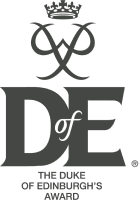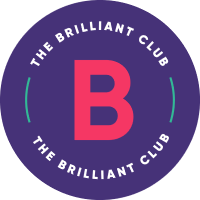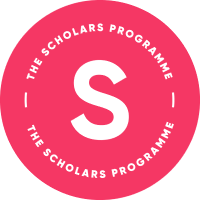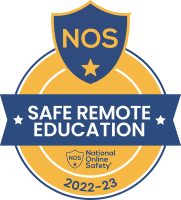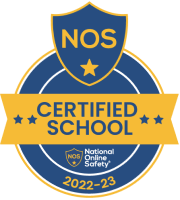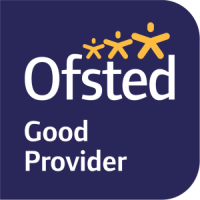This subject is part of the Faculty of Science and PE
Our Head of Faculty is
Mr D Bell – dbell@tcat.school
Our subject teachers and email addresses are
Mr D. Bell – dbell@tcat.school
Miss S. Griffiths - sgriffiths@tcat.school
Miss I. Muirhead - imuirhead@tcat.school
Our subject intent
Is to provide a high-quality physical education curriculum which inspires all pupils to succeed and excel in competitive sport and other physically-demanding activities. The curriculum provides opportunities for pupils to become physically confident in a way which supports their health and fitness and leadership skills. It also allows pupils to compete in sport and other activities to become well rounded young people, building character and helping to embed values such as fairness and respect. Our primary aims are to ensure that all students:
- Develop competence to excel in a broad range of physical activities
- Are physically active for sustained periods of time
- Engage in competitive sports and activities
- Lead safe, healthy, active lives
Curriculum Subject Offer
Year 7 PE
Subject intent
The KS3 curriculum is built on 3 pillars of learning: Performance, Coaching and Leadership, and Health and Fitness. Each pillar has a primary theme which is delivered through a wide variety of sports and activities. These build on and embed the physical development and skills learned in key stages 1 and 2, allowing students to develop the confidence and knowledge to get involved in exercise, sports and activities out of school and in later life.
Performance
- Become more competent in their techniques and apply them across different sports and physical activities.
- Inspire all pupils to succeed and excel in competitive sport.
- Compete in sport and other activities to build character and resilience and help to embed values such as fairness and respect.
- Physically active for sustained periods of time.
Coaching and Leadership
- Understand what makes a performance effective and how to apply these principles to their own and others’ work.
- Inspire all pupils to succeed and excel in physically-demanding activities.
- Analyse performances compared to previous ones and demonstrate improvements to achieve their personal best.
- Physically active for sustained periods of time.
Health and Fitness
- Understand and apply the long-term health benefits of physical activity.
- Inspire all pupils to succeed and excel in physically-demanding activities.
- Provide opportunities for pupils to become physically confident in a way which supports their health and fitness.
- Lead healthy, active lives.
- Physically active for sustained periods of time.
Topic Breakdown
|
|
Half term 1 |
Half term 2 |
|
Autumn |
Performance – Fundamentals, Rugby and Football |
Coaching and Fitness –Cross Country
|
|
Spring |
Coaching – Outdoor Adventure activities and Team
|
Coaching – Capoeira
|
|
Summer |
Performance – Rounders and Cricket |
Health and Fitness – Tennis and Athletics |
Students complete an independent assessment at the end of each block of work and are continuously monitored and assessed throughout each block of work.
PE full Scheme of Work - Year 7
Year 8 PE
Subject Intent
We intend to provide a high-quality physical education curriculum which inspires all pupils to succeed and excel in competitive sport and other physically-demanding activities. The curriculum provides opportunities for pupils to become physically confident in a way which supports their health and fitness. It also allows students to compete in sport and other activities to become well rounded young people, building character and helping to embed values such as fairness and respect. Our primary aims are to ensure that all students:
- Develop competence to excel in a broad range of physical activities
- Are physically active for sustained periods of time
- Engage in competitive sports and activities
- Lead safe, healthy, active lives
In year 7 you learnt to become more competent in their techniques and apply them across different sports and physical activities; Understood what makes a performance effective and how to apply these principles to their own and others’ work; Understood and applied the long-term health benefits of physical activity.
During Year 8 you will learn to:
Performance
- Correctly demonstrate skills specific to the activity
- Link skills accurately
- Perform skills with control in closed practices and game situations
- Provide an example of a movement at each joint
- Provide an example of a ligament and a tendon
Coaching and Leadership
- Compare performances and give basic feedback
- Understand the importance of targets and set them accordingly
- Understand how to improve performance and suggest some ideas
- Describe the different types of practice
Health and Fitness
- Explain the rationale for each part of a warm up
- Name and locate all of the major muscles in the body
- Describe why exercise is important in a healthy, active lifestyle
- Describe the methods of training
Topic Breakdown
|
|
Half term 1 |
Half term 2 |
|
Autumn |
Performance – Rugby and Football |
Fitness –Cross Country
|
|
Spring |
Coaching – Outdoor Adventure activities and Team
|
Coaching – Volleyball
|
|
Summer |
Performance – Rounders and Cricket |
Coaching – Athletics all events
|
Students complete an independent assessment at the end of each block of work and are continuously monitored and assessed throughout each block of work.
PE full Scheme of Work - Year 8
Year 9 PE
Subject intent
We intend to provide a high-quality physical education curriculum which inspires all pupils to succeed and excel in competitive sport and other physically-demanding activities. The curriculum provides opportunities for pupils to become physically confident in a way which supports their health and fitness. It also allows students to compete in sport and other activities to become well rounded young people, building character and helping to embed values such as fairness and respect. Our primary aims are to ensure that all students:
- Develop competence to excel in a broad range of physical activities
- Are physically active for sustained periods of time
- Engage in competitive sports and activities
- Lead safe, healthy, active lives
In year 8 you learnt to correctly demonstrate skills specific to the activity; Linked skills accurately; Compared performances and give basic feedback; Understood the importance of targets and set them accordingly
During Year 9 you will learn to
Performance
- Select and combine skills specific to the activity
- Consistently demonstrate control in practice situations
- Coordinate various body parts at the same time
- Describe how antagonistic pairs work
- Provide examples of the functions of the skeleton in sport
Coaching and Leadership
- Identify strengths and weaknesses in a performance
- Have good ideas for improving performance and suggest means of improvement to others
- Set managed targets for yourself and others, demonstrating the ability to review success
- Describe the different types of feedback
- Describe mental rehearsal
Health and Fitness
- Understand how to calculate MHR and the target training zones
- Describe all 11 components of fitness
- Plan and lead an effective warm up for all types of activity
- Describe some long term training effects and benefits of exercise
Topic Breakdown
| Half term 1 |
Half term 2 |
|
| Autumn | Performance – Rugby and Football |
Fitness – Health related fitness and SAQ
|
| Spring |
Coaching - Table Tennis Performance - Basketball |
Coaching – Volleyball
|
| Summer |
Performance – Rounders, Cricket and Softball |
Health and fitness – Athletics |
Students complete an independent assessment at the end of each block of work and are continuously monitored and assessed throughout each block of work.
PE full Scheme of Work - Year 9
Year 10 PE
Subject Intent
During year 10
Pupils should tackle complex and demanding physical activities. Developing and refining skills gained in KS3.
They should get involved in a range of activities that develops personal fitness and promotes an active, healthy lifestyle.
The main objectives are to:
- Develop competence to excel in a broad range of physical activities
- Students are physically active for sustained periods of time
- Engage in competitive sports and activities
- Lead healthy, active lives.
Topic Breakdown
| Half term 1 |
Half term 2 |
|
|
Autumn |
A choice of Netball, Dance/Zumba or Boys Rugby | A choice of Basketball, Girls Rugby or Fitness |
|
Spring |
A choice of football, Tennikoit, Badminton or Handball | A choice of Tchoukball, Dodgeball or Fitness |
|
Summer |
A choice of Cricket, Rounders or Softball | A choice of athletics events. (A run, throw or jump) |
PE full Scheme of Work - Year 10
Year 11 PE
Subject intent
During Year 11 Pupils should tackle complex and demanding physical activities. Developing and refining skills gained in KS3.
They should get involved in a range of activities that develops personal fitness and promotes an active, healthy lifestyle.
The main objectives are to:
- Develop competence to excel in a broad range of physical activities
- Students are physically active for sustained periods of time
- Engage in competitive sports and activities
- Lead healthy, active lives.
Topic Breakdown
|
|
Half term 1 |
Half term 2 |
|
Autumn |
A choice of Netball, Dance/Zumba or Boys Rugby | A choice of Basketball, Girls Rugby or Fitness |
|
Spring |
A choice of football, Tennikoit, Badminton or Handball | A choice of Tchoukball, Dodgeball or Fitness |
|
Summer |
A choice of Cricket, Rounders or Softball | A choice of athletics events. (A run, throw or jump) |
PE full Scheme of Work - Year 11
Year 10 Sports Science
Subject intent
By following the OCR Sports Science course learners will develop different types of skills through largely practical means; communication, problem solving, team working, evaluation and analysis, performing under pressure, and formulating written findings from practical investigation. These are all transferable skills which can be learned and assessed through the qualification and utilised in many other educational and employment settings. Students will appreciate that elite sport has embraced sport science disciplines wholeheartedly in the past few decades, moving from a perspective which assumed the primacy of natural talent in producing outstanding performance, to one which considers every minute detail of an athlete’s training programme, rest time, environment and psychology in the pursuit of excellence. The Cambridge Nationals in Sport Science offer learners the opportunity to study key areas of sport science including anatomy and physiology linked to fitness, health, injury and performance; the science of training and application of training principles, and psychology in sport and sports performance.
Topic Breakdown
|
Half term 1 |
Half term 2 |
|
|
Autumn |
R181 Components of fitness applied in sport
|
R181 Organising and planning a fitness training programme
|
|
Spring |
R181 – NEA hours to complete coursework |
R181 - NEA Practical lessons
|
|
Summer |
R182 The musculo-skeletal system and how the use of technology supports different types of sports and their movements
|
R182 The short-term effects of exercise on the cardio-respiratory and musculo-skeletal systems
|
You will be assessed 2 Non-examined assignments (NEA) and an external exam at the end of Year 11
Sports Science full Scheme of Work - Year 10
Year 11 Sports Science
Subject intent
By following the OCR Sports Science course learners will develop different types of skills through largely practical means; communication, problem solving, team working, evaluation and analysis, performing under pressure, and formulating written findings from practical investigation. These are all transferable skills which can be learned and assessed through the qualification and utilised in many other educational and employment settings. Students will appreciate that elite sport has embraced sport science disciplines wholeheartedly in the past few decades, moving from a perspective which assumed the primacy of natural talent in producing outstanding performance, to one which considers every minute detail of an athlete’s training programme, rest time, environment and psychology in the pursuit of excellence. The Cambridge Nationals in Sport Science offer learners the opportunity to study key areas of sport science including anatomy and physiology linked to fitness, health, injury and performance; the science of training and application of training principles, and psychology in sport and sports performance.
Topic Breakdown
|
Half term 1 |
Half term 2 |
|
|
Autumn |
R182 NEA – Hours to complete coursework |
R180 Different factors which influence the risk and severity of injury
|
|
Spring |
R180 Different types and causes of sporting injuries
|
R180 Reducing risk, treatment and rehabilitation of sports injuries and medical conditions
|
|
Summer |
R180 – Examination | R180 – Examination |
You will be assessed 2 Non-examined assignments (NEA) and an external exam at the end of Year 11
Sports Science full Scheme of Work - Year 11
Within each subject we have our own specific personalised marking and feeback policy.
|
Faculty: Science and PE |
||
|
|
KS3 |
KS4 |
|
Verbal dialogue |
Teachers circulate with purpose, checking pupils’ work, marking if appropriate and collecting information on whole-class strengths, errors, misconceptions, knowledge gaps etc. The teacher adjusts their lesson accordingly. Starter whole class feedback most lessons to reflect on last lesson and correct mistakes In PE verbal dialogue as a result of observation is the most used form of feedback |
Teachers circulate with purpose, checking pupils’ work, marking if appropriate and collecting information on whole-class strengths, errors, misconceptions, knowledge gaps etc. The teacher adjusts their lesson accordingly. Starter whole class feedback most lessons to reflect on last lesson and correct mistakes |
|
Self/peer assessment |
Written feedback through strengths/targets and annotations. Peer and self-assessment should be completed in blue pen. |
Written feedback through strengths/targets and annotations. Peer and self-assessment should be completed in blue pen. |
|
Whole Class Feedback |
Whole class feedback given at the start of most lessons usually verbally to address misconceptions from last lesson and share positives. |
Whole class feedback given at the start of most lessons usually verbally to address misconceptions from last lesson and share positives. |
|
Written comments |
Done using marking strength and target codes on a key piece of work per topic. Codes are written into books and pupils copy the targets and strengths associated with the codes into their books. They then complete the corresponding action. |
Done using marking strength and target codes on a key piece of work per topic. In KS4 this is on 6-mark exam questions. Codes are written into books and pupils copy the targets and strengths associated with the codes into their books. They then complete the corresponding action. Pupils will correct answers in blue using a mark scheme |
|
Frequency of feedback |
Live feedback and responsive teaching will take place in most lessons where pupils have been asked to complete tasks Whole-class feedback will take place most lessons. Peer/self-assessment Used in most lessons Written comments will take place once per topic on a key piece of work chosen by the class teacher. Marking codes will be used. |
Live feedback and responsive teaching will take place in most lessons where pupils have been asked to complete tasks Whole-class feedback will take place most lessons. Peer/self-assessment Used in most lessons Written comments will take place once per topic on a key piece of work chosen by the class teacher. Marking codes will be used. 6-mark exam questions |
|
Response to feedback |
When directed after marking/whole class feedback, pupils will be expected to make a response in blue pen. In other instances, pupils will be expected to apply their feedback to a different task under the title DIRT. This would be done in blue pen. In further instances, pupils may be asked to answer questions posed by the teacher. Corrections to key word spellings highlighted also to be corrected |
When directed after marking/whole class feedback, pupils will be expected to make a response in blue pen. In other instances, pupils will be expected to apply their feedback to a different task under the title DIRT. This would be done in blue pen. In further instances, pupils may be asked to answer questions posed by the teacher. Corrections to key word spellings highlighted also to be corrected |
|
Summative assessment |
Waterfall assessments completed at the end of every completed topic. 50% content from topic and 50% from previously taught content. End of year exams to cover all content covered through the year. |
Waterfall assessments completed at the end of every completed topic. 50% content from topic and 50% from previously taught content. End of year exams to cover all content covered through the year. Mocks for 10 and 11.
|
